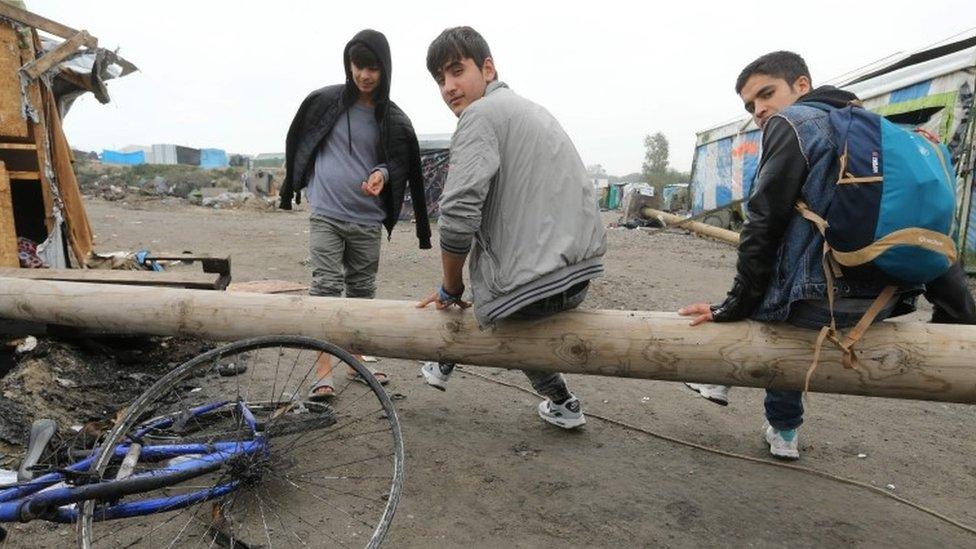'I got to know death': Syrian youths start again in London
- Published
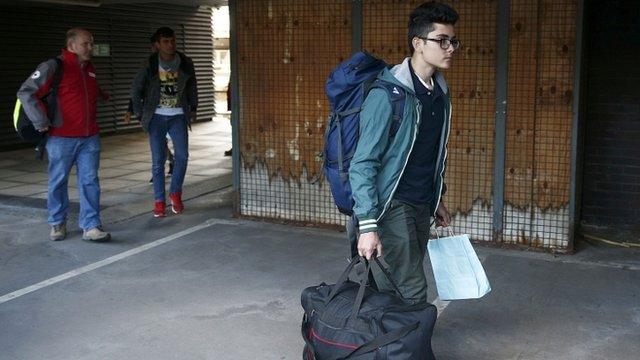
Young people were moved from the Calais Jungle camp, but what happened next?
"I was introduced to the concept of death. My cousins died, my brother was mutilated, my parents died.
"I got to know death.
"So if you're asking me what my biggest thing that I saw that was difficult for me - it was that I got to know death very well."
It's not really what you'd expect from a 17-year-old at college in north London.
But that was the grim description of a life left behind in Syria, by a refugee teenager who has come to the UK via the Jungle camp in Calais.
The clearing of the camp - and the fate of its young inhabitants - became part of a media storm, spilling into a wider debate about immigration.
But what happened to the individuals afterwards?
"If you compare it to what my eyes have seen, I can't complain," says Kabir, the 17 year old from Deraa in Syria.
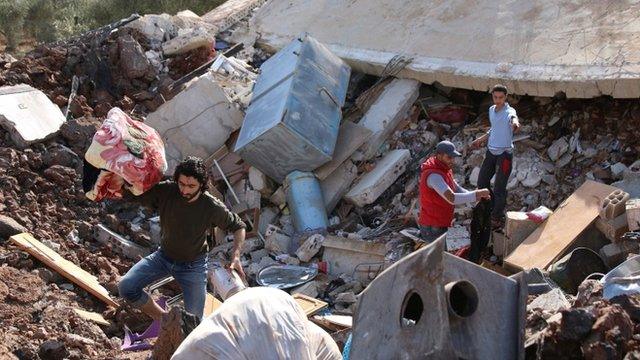
An airstrike in Deraa earlier this week
He was speaking alongside other young Syrian refugees, supported by the Safe Passage charity, at an event in London hosted by the Varkey Foundation, an international education charity.
Kabir - not his real name - is studying English at college and his frustrations are now about the bureaucracy of his new life rather than the horror of what he has left behind.
These youngsters are hungry to learn - and they talk of the destruction of the opportunities of young Syrians to study, as well as the physical destruction and loss of life.
"My fear is of a lost generation, people who have never seen the inside of a classroom. They're lost and I'm worried for my country because of that," said Mohammed - also not his real name - another 17-year-old Syrian.
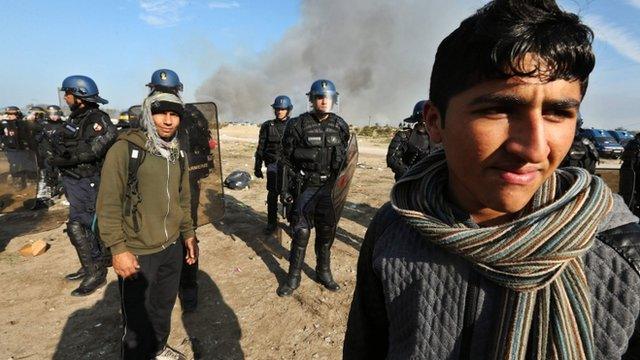
Young migrants after the demolition of the Calais Jungle
Kabir says they have been treated well since arriving in London.
On the road from Syria, he says the worst reaction was in France.
"I left from a war, but I've never seen hatred like the French. When we used to leave the camp at night, we used to get beaten," he said.
But even though they have left the camp and are in a place of safety, this really is not a feel-good story.
Kabir says that going back into education is a way of fulfilling his dead parents' determination for him to study and learn.
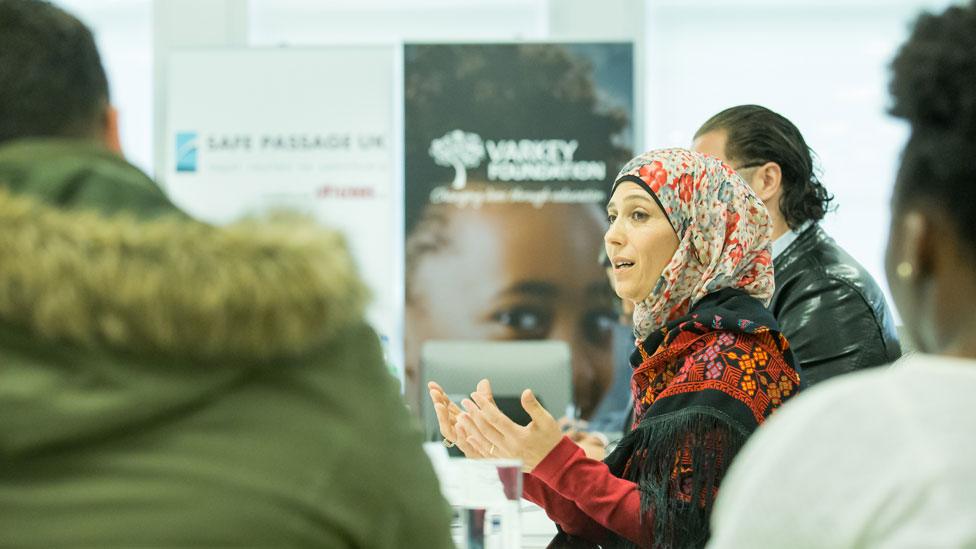
Hanan Al Hroub, winner of the Global Teacher Prize, said refugees needed psychological support
But in terms of his ambitions, he says: "My dreams are gone.
"Because my dreams and my childhood are in Syria - and Syria is no longer there any more, so all I can say is I can't plan a future."
Attending the event was Hanan Al Hroub, winner of the Global Teaching Prize, who said she understood the sense of "deep-rooted psychological harm".
Such arrivals needed psychological help as well as other more immediate support.
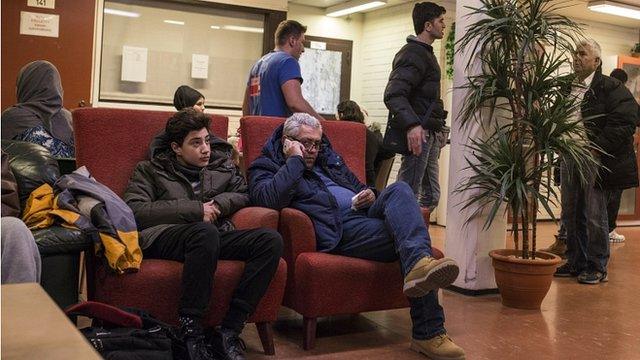
Syrian refugees are now scattered across Europe: A family in Finland this month
She also said that it should not need "sympathy" to provide them with an education, it should be a right for all.
But that raises questions of funding and Muhammed Butt, leader of Brent Council, said councils were already struggling with the cost of migrants.
His own authority had an overspend of £2.5m in "picking up the tab" for the cost of young migrants.
He said it was a responsibility that could not be shirked and he felt "ashamed" that refugees did not get the support they needed.
But access to education can also be difficult for people who have grown up in the UK.
Dami Makinde highlighted a hidden twilight zone facing the children of adults who have never gained citizenship or the right to stay in the UK.
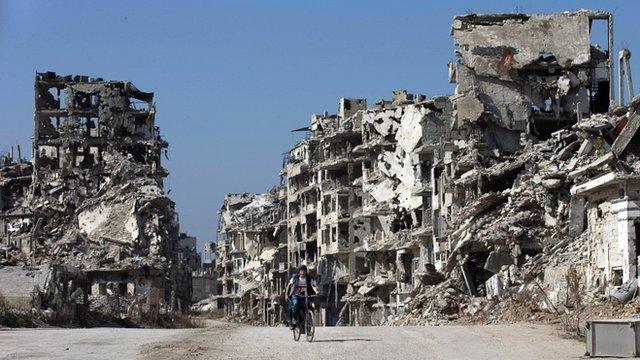
"Syria is no longer there any more": Syria's civil war has left cities in ruins
These youngsters might have come to the UK as young children and gone through primary and secondary school, but then discover they have no right to student funding to go to university.
Ms Makinde says the "Let Us Learn" campaign she supports has worked with more than 600 youngsters caught in this situation.
They were brought to the UK as children, they've known no other life, and then find they are classified as overseas students, with high fees and no financial support.
In her own case, she said it took six years of bureaucracy before she could regularise her status as having a right to stay in the UK.
She says there are young people, who never had any say in whether they were brought to live in the UK, who live hidden away, told not to tell anyone of their situation - and who then cannot go to university or study beyond school.
Gareth Thomas, Labour MP for Harrow West, said he had come across such problems among his own constituents.
But for the young Syrians, the questions are more immediate.
"I came here after seeing most of my family killed or mutilated," said Kabir.
"My mother and father's dream has always been for me to learn. I'm here. I can learn."
- Published3 November 2016
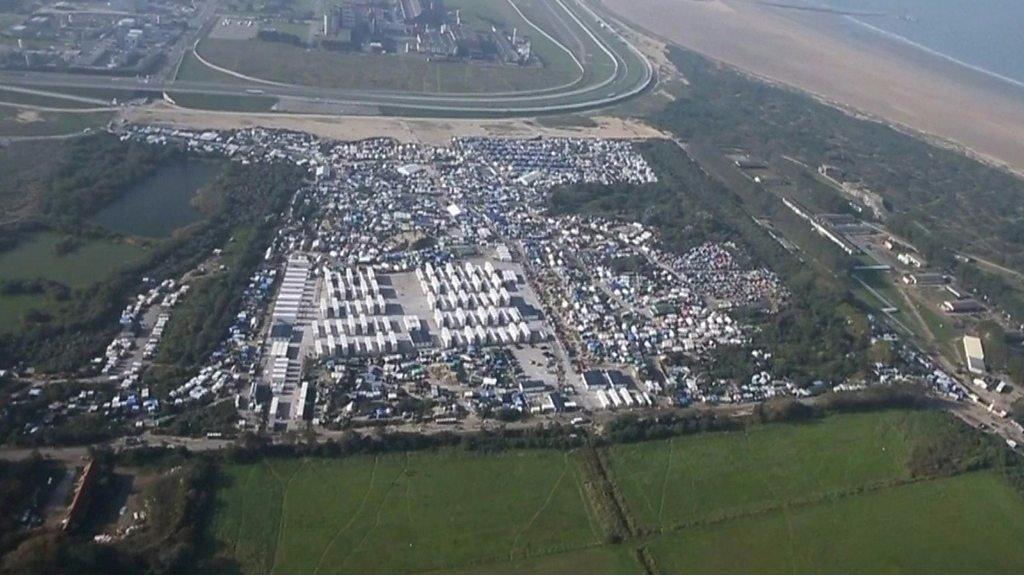
- Published30 October 2016
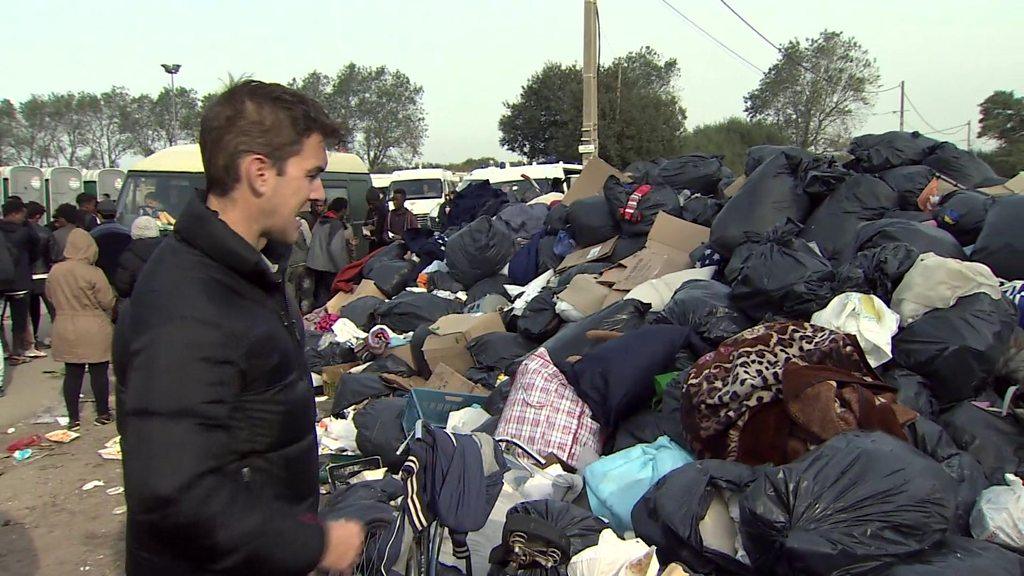
- Published29 October 2016
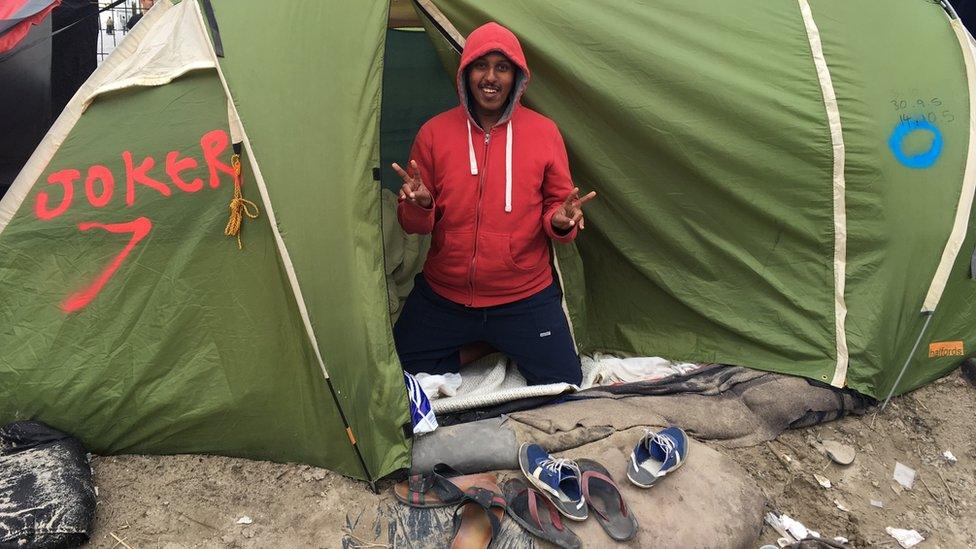
- Published27 October 2016
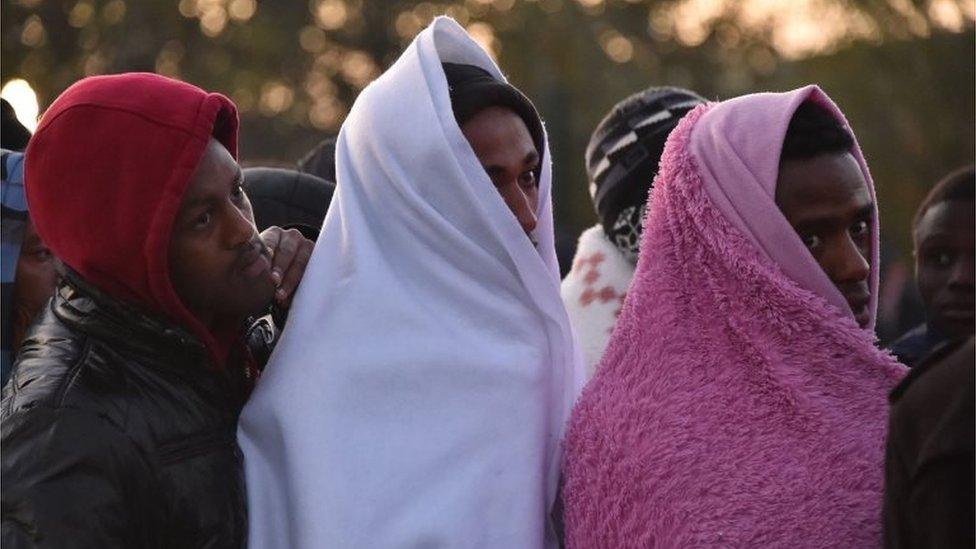
- Published25 October 2016
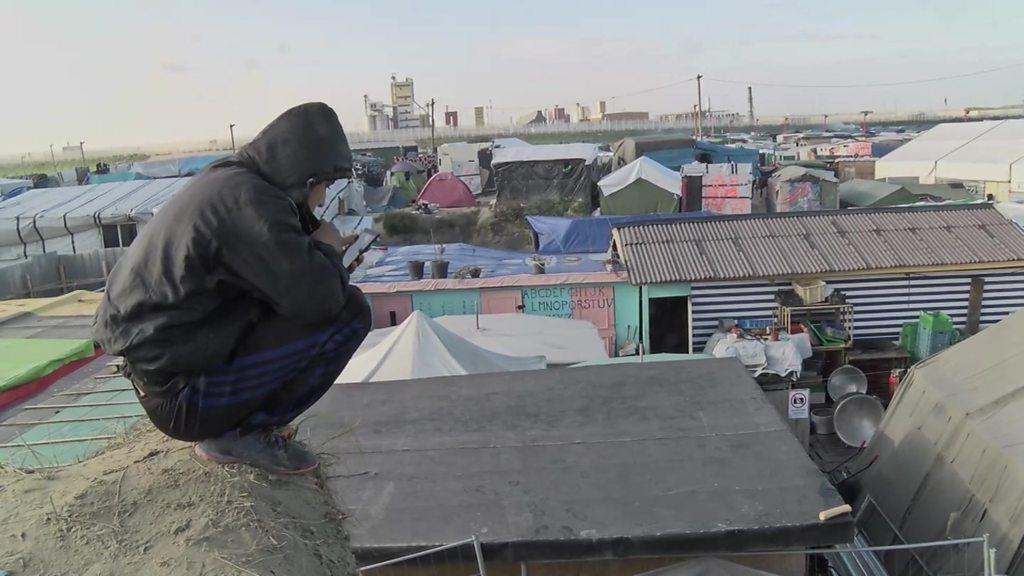
- Published25 October 2016
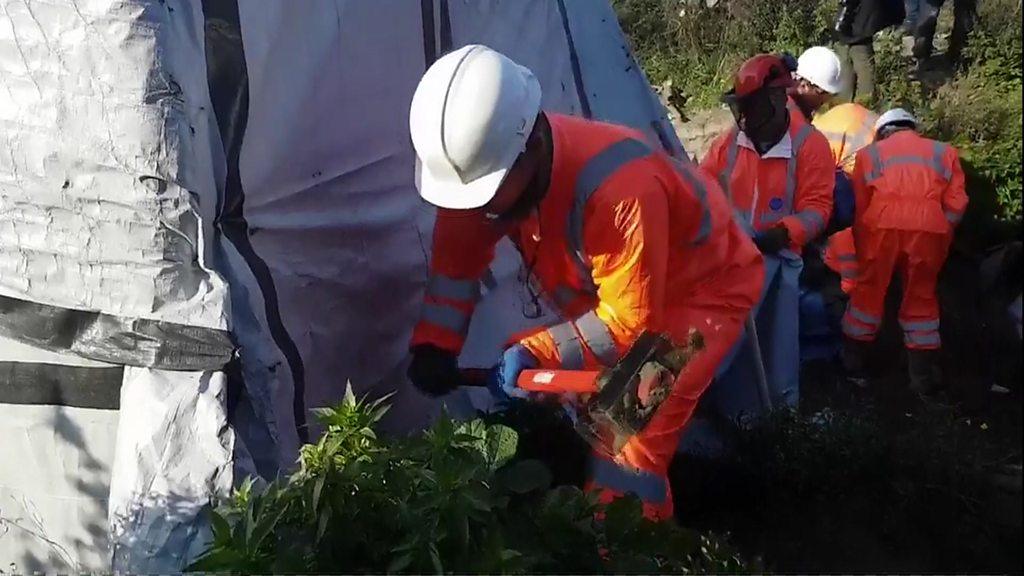
- Published29 October 2016
